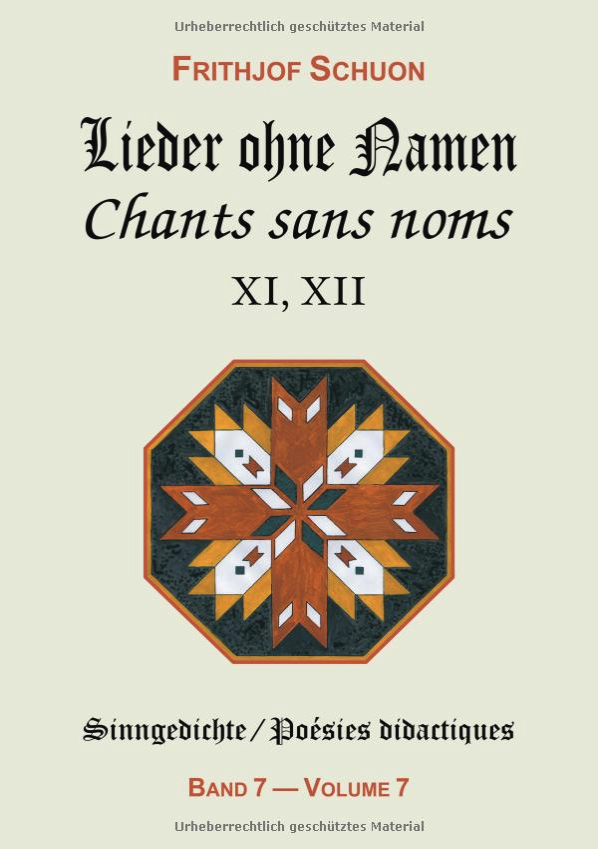
Frithjof Schuon Archive

Articles
| Titel | Zusammenfassung | Source | Article Language | Download | hf:tax:article_subject |
|---|---|---|---|---|---|
| Travel Meditations | Many questions arise simply because man lets himself be enticed into the domain where questions lie, instead of keeping firmly to the domain of certainty, If a man is confused by something, he should first of all come back to the certainty that it is not this world as such which is important, but the next world, and above all that God is Reality; and he should say to himself: in the face of this truth, which in principle is the solution to all questions, this or that question just does not arise; it is enough if he has the Answer of answers. And then God will give him a light also for what is earthly and particular. | Studies in Comparative Religion - Vol. 14, Nos. 1 & 2 (Winter-Spring, 1978) | English | comparative-religion multiple | |
| The Three Dimensions of Sufism | “FEAR” (makhâfah), “Love” (mahabbah), “Knowledge” (tarîqah): In Sufism (tasawwuf ), these are the three dimensions or stations of the way (tarîqah); “dimensions” from the point of view of their vocational separation or from the point of view of their coincidence in every spiritual vocation, and “stations” from the point of view of their succession in spiritual development. | Studies in Comparative Religion, Vol. 10 No. 1. (Winter 1976) | English | comparative-religion multiple sufism |
Featured Books
Lieder ohne Namen – Chants sans noms, XI, XII : Poésies didactiques, tome 7 (zweisprachige Ausgabe) (Taschenbuch)
In den letzten drei Jahren seines Lebens schrieb Frithjof Schuon etwa 3.500 Gedichte in seiner Muttersprache Deutsch.
Featured Poems
Adastra and Stella Maris: Poems by Frithjof Schuon-Doubt
Thou hast never been in the better Hereafter;
Adastra and Stella Maris: Poems by Frithjof Schuon-A Myth
It has been taught: one of the highest angels
Adastra and Stella Maris: Poems by Frithjof Schuon-Eschatology
It is taught that there is Heaven or hell
Featured Articles
Book Review of “Light on the Ancient Worlds”
Foreword to “Language of the Self”
V. Raghavan (1908-1979) wrote this „Foreword“ to Frithjof Schuon’s book Language of the Self. It appeared in the first edition in India, and then later in World Wisdom’s 1999 edition. The foreword summarizes Schuon’s perspective in a number of areas as divergent as the transcendent unity of religions, the modern world, metaphysics, and his approach to and appreciation of Hinduism.
The Mystery of the Two Natures
Combining a Socratic and a personal approach, Cutsinger looks to the writings and insights of Frithjof Schuon to examine „how in good conscience can a traditional Christian accept the idea that there is a ‚transcendental unity of religions‘?“ The author finds answers in a deeper understanding of Christ’s two natures: human and Divine.
